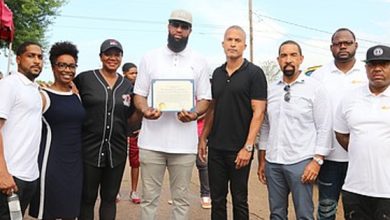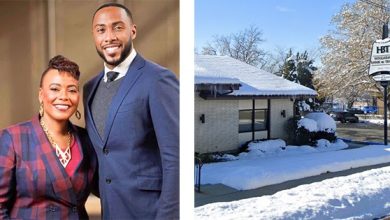Small business owners feel pressure from tariffs and labor market

The Bureau of Labor Statistic’s October Employment Situation Summary would’ve come out Friday, if the folks at the Labor Department who crunch those numbers were working.
To analyze the job market, there is some private-source data to go on. Payroll processor ADP reported this week that private employers added 42,000 jobs in October, which was more than expected, and a lot better than in August and September, when employers shed jobs, according to ADP.
Drill down, though, and the picture is a little blurrier. In October, small and mid-sized businesses actually shrank their headcounts. It was only large companies — with 500 or more employees — that added jobs.
One exception was Chris Kesler at Black Flannel Brewing near Burlington, Vermont. His distillery is growing sales by double digits, and his brewpub is doing really well.
“We’re at about 8% growth right now over last year,” Kesler said.
So, he’s staffing up, adding to his current workforce of about 40.
“We’re currently hiring a sous-chef in the kitchen,” said Kesler
By early next year, he’s hoping to hire another half-dozen employees but he doesn’t think it’ll be particularly easy, with Vermont’s unemployment rate so low.
Across the country is another brewpub, Well 80 in Olympia, Washington, where owner Chris Knudson said business isn’t bad, but it isn’t great, either.
“We’ve certainly scaled back on staffing over the last year-and-a-half, two years. Volume is down, and labor obviously is going up,” Knudson said.
Washington has one of the highest minimum wages in the country at $16.66-an-hour.
Maryland-based BAYDOG sells “canine adventure” equipment. Owner Barton O’Brien has six employees on staff.
“Right now, we are looking for an additional salesperson. And the thing that I found so alarming is that we’re getting a lot of applications from candidates who are way over-qualified,” O’Brien said.
The business is growing, but he’s worried about the cost of tariffs on his imported products going forward, and the health of the U.S. consumer.
“The problem my business has is nobody needs a $70 dog life jacket. We are 100% dependent on consumers’ discretionary income,” O’Brien said.
The burden of tariffs has forced business owner Sarah Wells in Fairfax, Virginia, to downsize to just four employees. Her company, Sarah Wells Bags, sells backpacks and shoulder-bags for carrying breastfeeding gear.
“We at our peak were about double the size that we are now,” Wells said. “The devastating effects of the tariffs this year, means that I cannot pay everyone that we need to operate this business.”
She said at the same time as the cost of her imported products has gone up, new parents —worried about their finances and job security — are cutting back on their spending.




